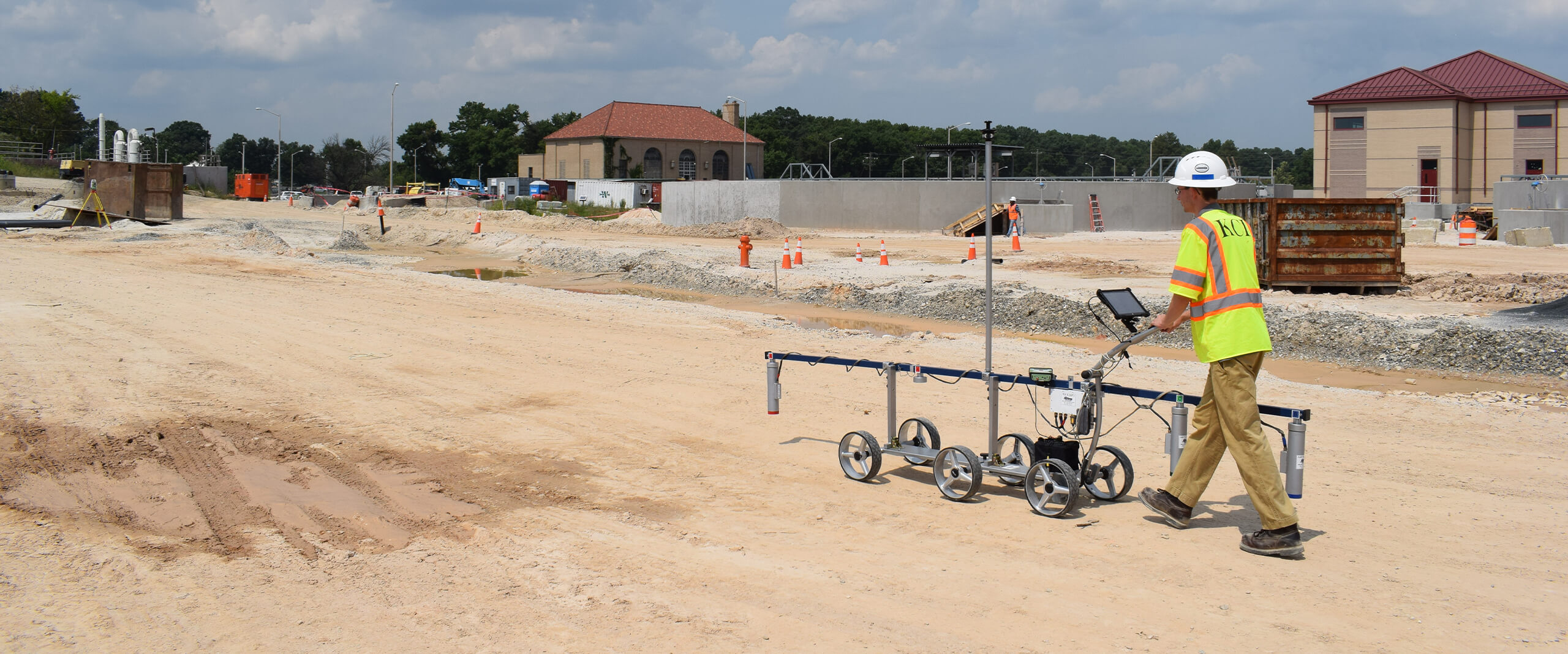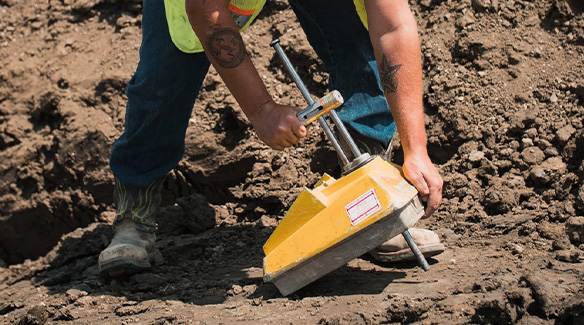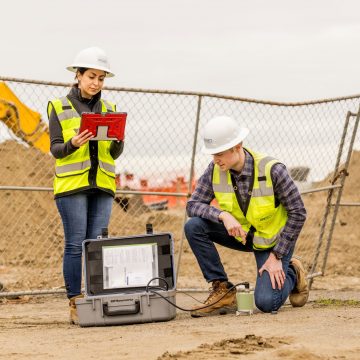Why Employing a Geo Tech Engineer is Critical for Facility Building And Construction Tasks
Why Employing a Geo Tech Engineer is Critical for Facility Building And Construction Tasks
Blog Article
Comprehending the Important Function of the Geotechnical Industry in Modern Building And Construction Projects and Facilities Development
The geotechnical industry is a foundation of modern-day construction and infrastructure growth, offering crucial understandings into dirt behavior that straight influence task end results. Via innovative dirt analyses and cutting-edge engineering services, geotechnical specialists not just guarantee structural honesty yet also address sustainability concerns amid evolving ecological requirements. As framework needs expand and brand-new obstacles arise, the importance of this field becomes significantly noticeable. What ramifications might these growths have for future jobs and the total safety and security of our constructed setting?
Value of Dirt Analysis
Dirt evaluation plays a critical function in the geotechnical market, working as the foundation for informed decision-making in building and construction tasks. Precise dirt assessment is crucial for determining the suitability of a site for different kinds of frameworks, consisting of property homes, business structures, and bridges. By analyzing soil composition, moisture, strength, and thickness web content, engineers can expect possible obstacles and mitigate threats associated with ground instability, erosion, and negotiation.
The evaluation procedure typically includes a series of tests and observations that provide essential details regarding the subsurface conditions. This information informs the design and building procedures, ensuring that structures are improved strong ground with appropriate support. Recognizing the dirt profile makes it possible for designers to choose proper construction methods and materials, optimizing resource application and decreasing expenses.
In addition to making sure architectural integrity, soil analysis contributes to environmental sustainability. By determining prospective contamination or adverse results on bordering ecological communities, engineers can implement methods to shield these natural deposits. Overall, thorough soil evaluation is crucial in the geotechnical area, underpinning the security, effectiveness, and environmental duty of building and construction tasks.
Key Geotechnical Techniques
A variety of key geotechnical strategies are used to evaluate and improve the stability and performance of building websites. One fundamental approach is dirt sampling and screening, which permits designers to establish the chemical and physical properties of the ground. This info is critical for making educated choices pertaining to structure layout and construction techniques.
An additional crucial technique is website characterization, which involves the detailed analysis of soil and rock problems with methods such as borehole exploration and in-situ testing. Techniques like Standard Penetration Tests (SPT) and Cone Infiltration Tests (CPT) give important data on dirt strength and stratigraphy.
Ground renovation techniques, such as soil stabilization and grouting, are additionally vital in boosting the load-bearing ability of weak soils. These methods can mitigate settlement and boost total site problems.
Furthermore, slope security analysis is essential for determining prospective landslide dangers and guaranteeing the safety and security of excavations. This analysis typically uses numerical modeling and restriction equilibrium methods to forecast soil behavior under numerous problems.
Including these geotechnical methods right into building and construction planning not only maximizes job outcomes yet likewise makes sure the long-lasting sustainability of infrastructure advancement.
Impact on Building Safety

In addition, efficient geotechnical engineering entails executing reduction techniques for identified dangers. This may include dirt stabilization strategies, retaining structures, or drainage systems to alleviate hydrostatic pressure. By addressing these factors, building groups can lower the likelihood of accidents and boost employee safety.
Furthermore, continual surveillance of website conditions is critical during construction. Geotechnical tools can give real-time information regarding ground movement and stability, allowing for timely treatments when required.
Basically, the geotechnical market plays a critical function in protecting construction jobs. By focusing on ground stability and employing rigorous analysis methods, the geotechnical sector not just shields the labor force yet also adds to the longevity and integrity of constructed infrastructure.
Sustainability in Geotechnical Practices

Moreover, geotechnical designers are currently using sophisticated innovations, such as geosynthetics, which boost dirt stability while reducing the volume of material needed. This not just conserves sources but also results in less waste generation (geo tech engineer). The integration of sustainable design concepts right into geotechnical design urges making use of renewable resource resources in building and construction procedures, better reducing carbon discharges
By conducting these analyses, geotechnical professionals can establish strategies that reduce negative results, making sure conformity with environmental policies. Overall, the focus on sustainability within geotechnical practices not only adds to the longevity and resilience of framework however also promotes a responsible technique to land and source management.
Future Trends in Geotechnical Design
Advancement is driving the future of geotechnical engineering, as emerging modern technologies and approaches reshape the industry. The assimilation of advanced data analytics and fabricated intelligence is readied to revolutionize site examination and threat assessment, allowing designers to make more enlightened choices based upon real-time data. The use of geosynthetic products is obtaining grip, supplying lasting solutions that boost soil security and lower environmental influence - geotechnical engineers.
Another substantial pattern is the adoption of automated and robotic systems for monitoring and building and construction processes. These innovations not only enhance precision but additionally enhance safety and security by lessening human involvement in harmful atmospheres. Additionally, the implementation of Structure Info Modeling (BIM) in geotechnical style promotes enhanced collaboration among stakeholders, optimizing project distribution and lowering prices.
As climate adjustment poses brand-new challenges, the sector is progressively concentrating on strength and adaptability in style techniques, making certain infrastructure can hold up against extreme weather occasions. The recurring fad toward sustainability will certainly drive technology in environmentally friendly materials and approaches, straightening geotechnical design with more comprehensive environmental objectives. Collectively, these fads will certainly shape a more reliable, lasting, and resistant geotechnical landscape for future jobs.
Verdict

The geotechnical market is a foundation of modern building and facilities advancement, giving crucial insights into soil habits that straight affect task results. geo tech engineer.Dirt evaluation plays a crucial duty in the geotechnical sector, offering as the structure for informed decision-making in construction tasks. Generally, detailed dirt assessment is crucial in the geotechnical area, underpinning the security, performance, and ecological responsibility of construction projects
Building safety and security is dramatically affected by geotechnical practices, as the stability and integrity of the ground straight influence the general safety and security of a building and construction site.In verdict, the geotechnical industry is essential in contemporary building and construction and infrastructure advancement, providing critical analyses that guarantee structural integrity and safety and security.
Report this page